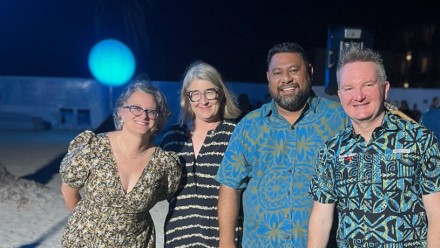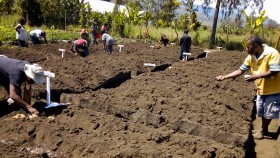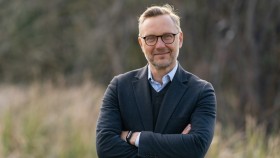ANU researcher appointed to COP29 Presidency Scientific Council
Leading Pacific Islands researcher Salā Dr George Carter has been appointed to the Scientific Council of the COP29 Presidency, joining a distinguished global team of scientists that will guide climate policy discussions at this year’s United Nations Climate talks in Azerbaijan. His appointment signals the rising prominence of Pacific voices in the global climate discourse, particularly in advocating for small island states most vulnerable to the impacts of climate change.
“It’s an absolute privilege to join this prestigious council,” said Dr Carter, Senior Fellow and Deputy Head of the Department of Pacific Affairs at The Australian National University (ANU). “This role is about amplifying and elevating our Pacific science and lived experiences in the COP process. It’s more than just research—it's a life mission.”
The Scientific Council of the COP29 Presidency plays a pivotal role in ensuring that science informs climate negotiations and decision-making. With 28 experts from diverse regions and institutions, the council facilitates cross-border collaboration, strengthens access to climate science, and supports the implementation of the Paris Agreement. Through this platform, Dr Carter is determined to ensure that Pacific perspectives remain central to global climate discussions.
“We hope to bring more means of implementation—whether finance, capacity building, or technology—to Pacific, New Zealand, and Australian universities and researchers so they can influence global policy on climate change,” Dr Carter explained. “Our aim is to solidify our research agency and ensure our scientists and traditional knowledge holders have a seat at the table.”
Dr Carter’s inclusion in this council underscores his extensive expertise in the intersection of climate change and international politics, with a specific focus on Pacific Island nations. His research explores climate diplomacy, security, and the role of traditional knowledge in international negotiations, making him a vital advocate for the unique challenges faced by Small Island Developing States (SIDS).
Dr Carter’s leadership spans several influential roles at the University, including as Director of the ANU Pacific Institute and Lead for both the Security and the Indigenous peoples, cultures and knowledges research clusters at the ANU Institute for Climate, Energy & Disaster Solutions (ICEDS). His work extends to multilateral ocean negotiations, sustainable development, and climate finance—all areas critical to the Pacific region’s future.
Dr Carter’s deep commitment to his community is further reflected in his co-founding of the Resilient and Sustainable Islands (RESI) think-tank, which seeks to empower island nations with knowledge and solutions for climate resilience. His Samoan heritage, marked by his high chief title of Salā, shapes his approach to ‘tautua,’ or service, which is the guiding principle of both his research and teaching.
As he takes on his new role in the COP29 Scientific Council, Dr Carter will bring his expertise, as well as the Pacific’s voice, into the heart of global climate decision-making. His participation promises to elevate critical issues facing island states and ensure that the world’s most vulnerable nations have a seat at the table when determining the planet’s climate future.
Image: Salā Dr George Carter attended the Pacific Island Countries Ministerial Talanoa with Australia and New Zealand in Fiji in October. George is pictured here at the Talanoa with The Hon Chris Bowen MP, Australian Minister for Climate Change and Energy.











